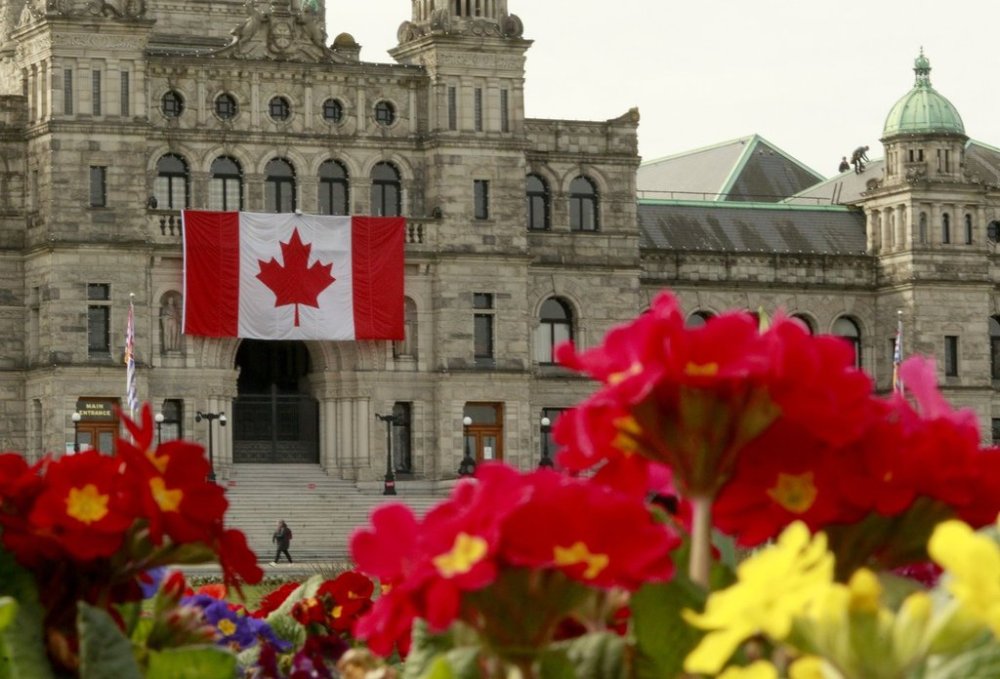B.C. introduces new mining claims framework to ensure First Nations consultation
Advertisement
Read this article for free:
or
Already have an account? Log in here »
To continue reading, please subscribe:
Monthly Digital Subscription
$0 for the first 4 weeks*
- Enjoy unlimited reading on winnipegfreepress.com
- Read the E-Edition, our digital replica newspaper
- Access News Break, our award-winning app
- Play interactive puzzles
*No charge for 4 weeks then price increases to the regular rate of $19.00 plus GST every four weeks. Offer available to new and qualified returning subscribers only. Cancel any time.
Monthly Digital Subscription
$4.75/week*
- Enjoy unlimited reading on winnipegfreepress.com
- Read the E-Edition, our digital replica newspaper
- Access News Break, our award-winning app
- Play interactive puzzles
*Billed as $19 plus GST every four weeks. Cancel any time.
To continue reading, please subscribe:
Add Free Press access to your Brandon Sun subscription for only an additional
$1 for the first 4 weeks*
*Your next subscription payment will increase by $1.00 and you will be charged $16.99 plus GST for four weeks. After four weeks, your payment will increase to $23.99 plus GST every four weeks.
Read unlimited articles for free today:
or
Already have an account? Log in here »
Hey there, time traveller!
This article was published 26/03/2025 (257 days ago), so information in it may no longer be current.
British Columbia has introduced a new framework for consultation on mining claims, but the B.C. Assembly of First Nations regional chief says it “does not come close” to the collaborative approach outlined in the province’s Indigenous rights law.
In an op-ed published by the Vancouver Sun, Terry Teegee says B.C.’s law adopting the United Nations Declaration on the Rights of Indigenous Peoples reflects a “duty to consent,” going beyond the duty to consult First Nations on issues affecting their lands, and the new mineral framework represents “a step backward.”
A statement from B.C.’s Mining Ministry says the changes to the mineral tenure system were required to align with a 2023 B.C. Supreme Court ruling, which established that First Nations must be consulted at the time of claim staking.

It marks a shift from the previous practice, when consultation began later, during the permitting phase for exploration.
Teegee says the framework means companies can no longer register large swaths of land for mineral exploration and must now notify First Nations and request they respond.
He says the shift will result in an influx of mineral applications, overwhelming First Nations offices that often face staffing and other capacity challenges, while providing “limited opportunities” for nations to stop or modify mineral permits.
“The framework risks perpetuating business-as-usual practices that exclude First Nations from critical decision-making processes,” he says in the op-ed.
Under the new Mineral Claims Consultation Framework, the province says individuals with a Free Miner Certificate can apply for a mineral or placer claim by filing out an online application in the Mineral Titles Online system.
It says the province will then consult with First Nations, then the chief gold commissioner will determine whether the duty to consult has been met and if the claim should be registered, denied, or registered with accommodations.
All pre-existing claims will remain valid, and decisions will be published on the Mineral Titles Online website to ensure transparency, the province says.
“Through the (new framework), we are ensuring we address our constitutional obligations, and (are) bringing certainty to the earliest stages of the mineral exploration process,” Mining Minister Jagrup Brar says in the news release.
“We will continue to monitor and improve the framework to ensure that it is straightforward, fair and results in timely decisions.”
The case that led to the new framework began in 2021, when the Gitxaala Nation filed a petition challenging the province’s online mineral tenure registry, which automatically granted mineral rights on its territory without consultation.
The Ehattesaht First Nation filed a similar petition in June 2022, and the B.C. Supreme Court heard the cases together the following year.
The court suspended its ruling for 18 months, allowing the province time to make changes to the mineral tenure system.
Teegee says in his op-ed that while the province has recognized challenges in the referral process, it has recommitted to a “flawed system … circumventing the substantive changes necessitated by years of legal battles and the provincial government’s spending (of) millions fighting First Nations in court.”
This report by The Canadian Press was first published March 26, 2025.

